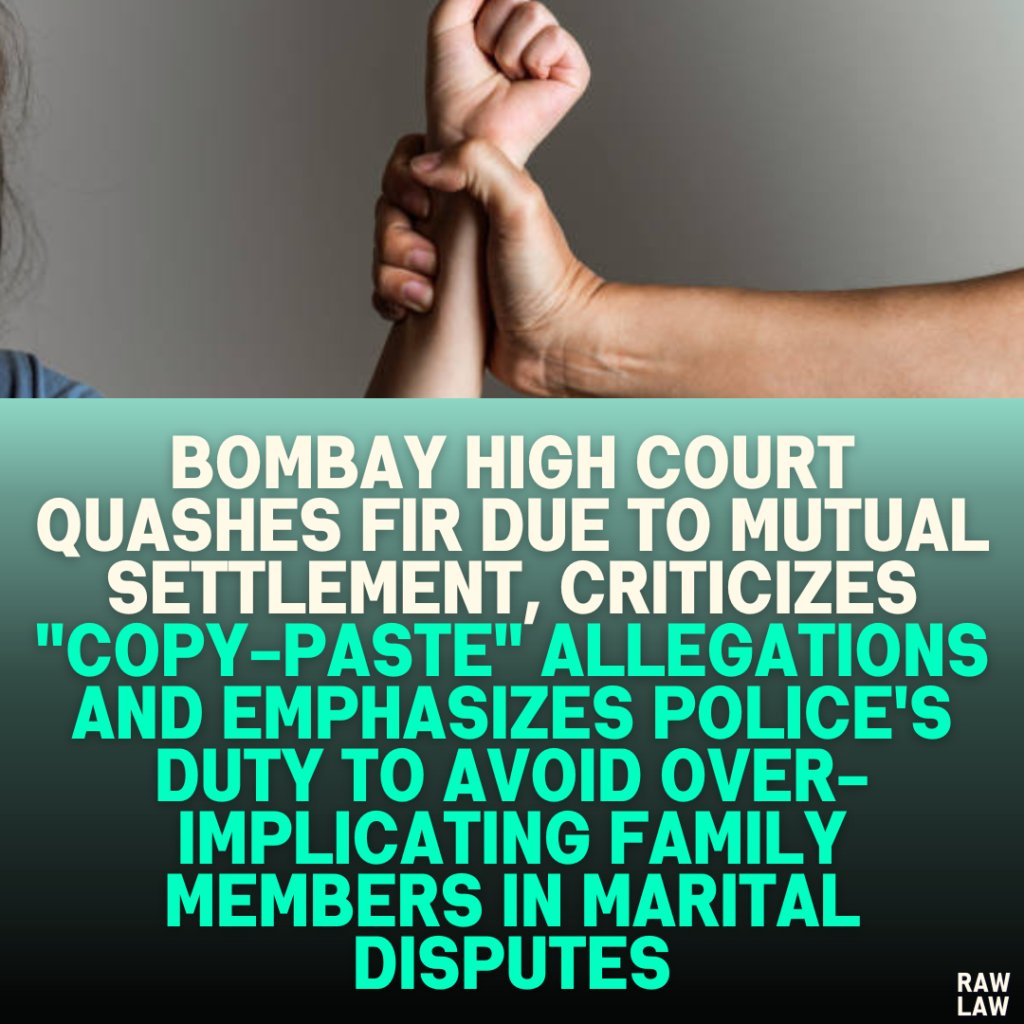Court’s Decision
The Bombay High Court quashed the FIR registered against the petitioners under multiple sections of the Indian Penal Code, observing that the marital dispute had been mutually settled. The court noted that a mutual consent divorce had been granted, and the complainant expressed no objection to quashing the criminal proceedings.
Facts
The complainant married Petitioner No. 1 in February 2020, with the complainant’s family allegedly providing significant marriage expenses. She began residing with her husband and his family, where she allegedly faced mistreatment, including demands for additional money and physical harassment. Following these allegations, an FIR was registered, implicating not only her husband and immediate family but also extended relatives who lived in different locations. The complainant’s family members corroborated her allegations in their statements.
Issues
The main issues included:
- Whether the FIR and subsequent criminal proceedings should be quashed following the mutual settlement.
- Whether police should take greater care to avoid over-implication of extended family members in such disputes.
Petitioner’s Arguments
The petitioners argued that the matter had been amicably resolved, with a mutual consent divorce granted in December 2022. The complainant had filed a consent affidavit expressing her agreement to the quashing of the FIR and the chargesheet. Additionally, the petitioners contended that many of the implicated family members were unjustly involved due to generalized allegations.
Respondent’s Arguments
The state did not oppose the petition for quashing, given the mutual settlement and the complainant’s consent.
Analysis of the Law
The court emphasized the need for judicial restraint in cases involving family disputes. It referenced the misuse of criminal proceedings in matrimonial cases, particularly regarding extended family members who may be falsely implicated without specific allegations.
Precedent Analysis
The judgment drew on precedents cautioning against the over-inclusion of family members in matrimonial disputes and encouraged investigative restraint to avoid unnecessary harassment of individuals not directly involved in the primary conflict.
Court’s Reasoning
The court found that the mutual settlement between the parties, the complainant’s explicit consent to quash the proceedings, and the amicable resolution through divorce negated the necessity of continuing criminal proceedings. The court criticized the FIR’s preparation, noting that it appeared to be a “copy-paste” of an initial application to a women’s committee without independent verification by police. It emphasized the importance of investigating officers exercising discretion, especially when implicating relatives residing far from the primary residence.
Conclusion
The court allowed the petition to quash the FIR and chargesheet, affirming that with the mutual settlement and divorce, the criminal proceedings served no further purpose.
Implications
This decision underscores the importance of investigating authorities carefully assessing the scope of involvement in marital disputes before implicating extended family members. It calls for judicious use of discretion to avoid undue harassment, urging police officers to document statements independently instead of relying solely on preliminary applications by complainants. The ruling also reinforces the legal system’s support for settlement in family disputes, aligning criminal proceedings with the reconciliatory objectives of family law.
